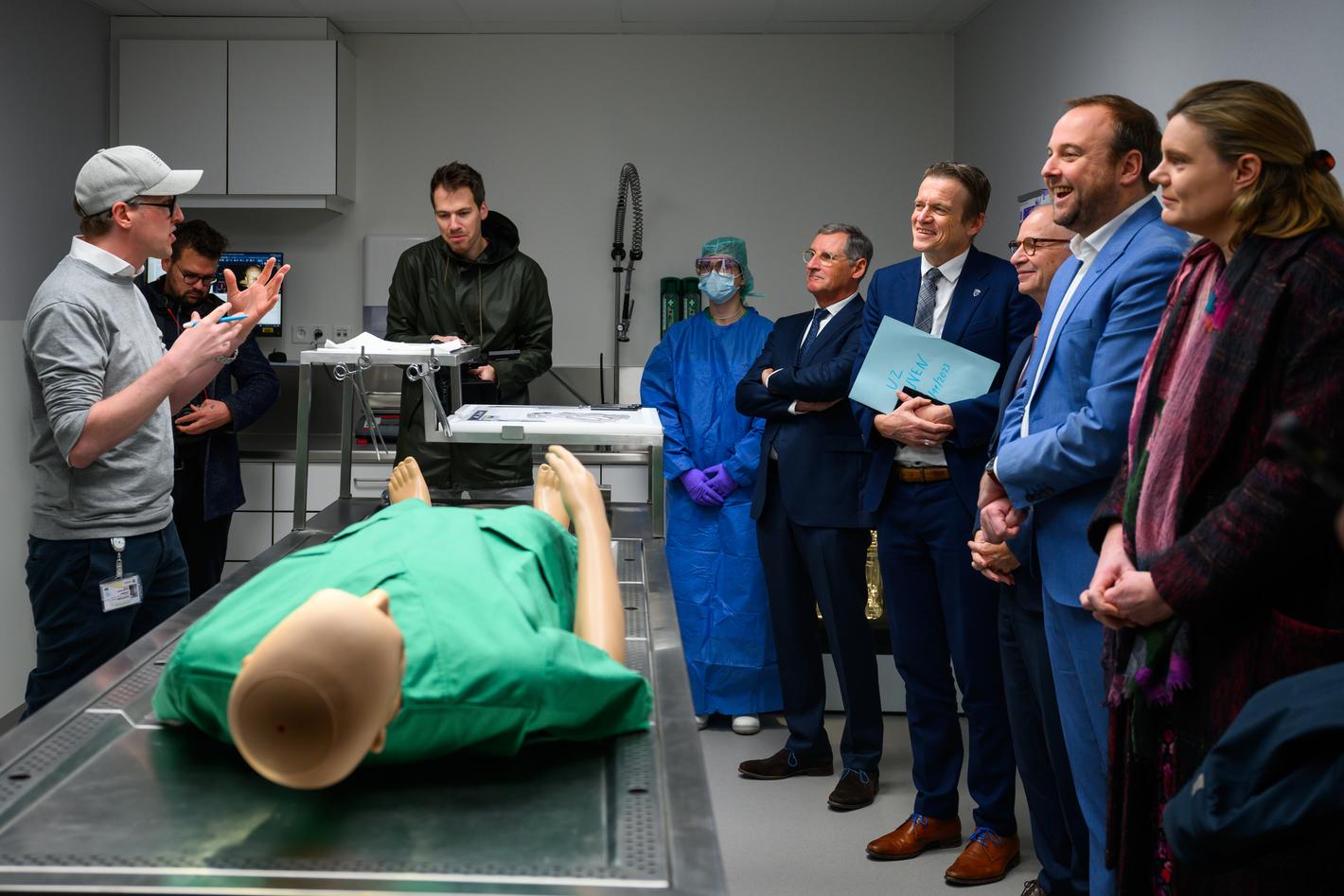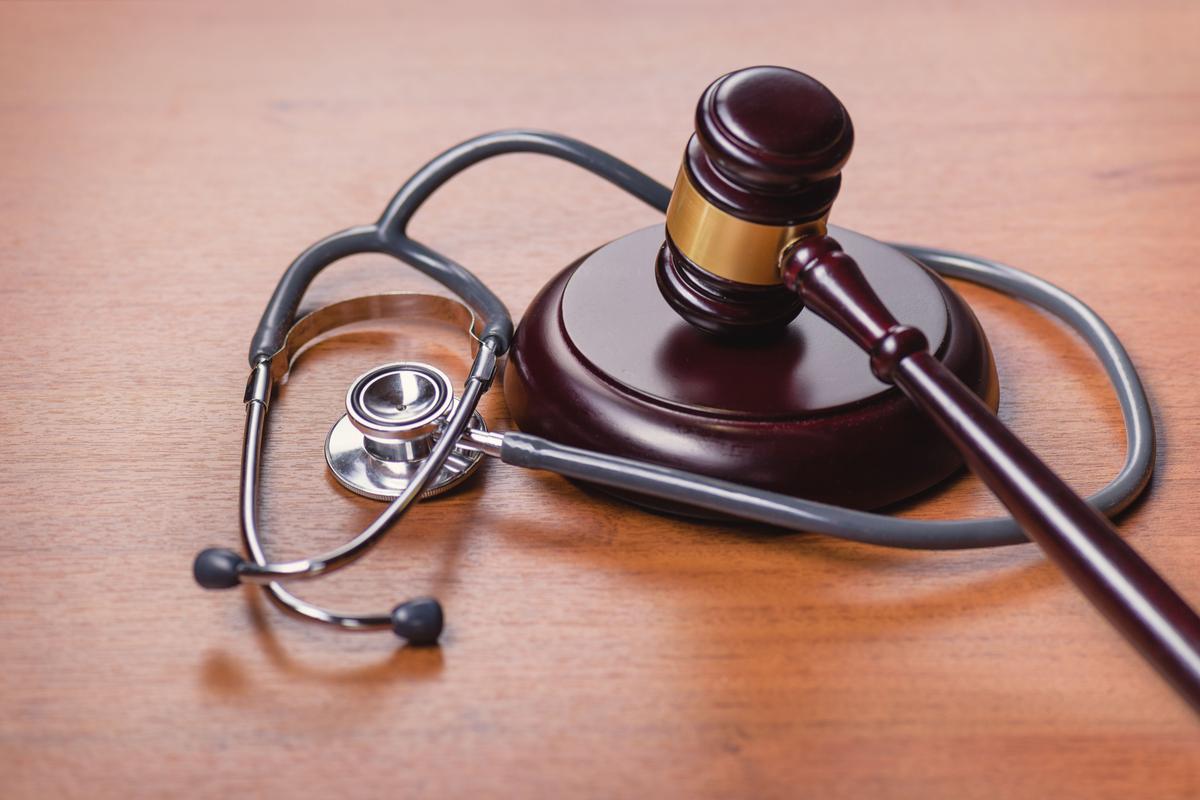New approach
Currently an autopsy is only carried out in 0.5-1% of deaths in our country, resulting in an approximate of 70 suspect deaths that go unnoticed. Moreover, Belgium has only about 40 medical examiners, and the profession has become less attractive in recent years, partly due to a lack of career prospects. Centres of expertise, such as the pilot project at UZ Leuven, can mean a sustainable turnaround on several fronts.
In an FMI employed medical examiners can unite themselves, work out work and holiday arrangements and make use of new high-tech equipment thanks to additional financing. This creates a more structured and modern approach, in close collaboration with the public prosecutor's offices. In-service training and internships for budding medical examiners are also on offer. That way, the profession will become more future proof and ensure the inflow. In addition there is the necessary attention for bereavement care, including discussions with next-of-kin where substantiated answers are given to their questions. This approach has to lead to more medical examiners, more autopsies, better results and a higher detection level of suspect deaths.
The UZ Leuven FMI takes on more than a third of all Flemish forensic autopsies. In time, the federal justice department intends to createh 5 FMIs nationwide.
Brand new autopsy room
In addition to the recognition as the first Belgian FMI, the department of forensic medicine is also proud to officially inaugurate its new autopsy room. This differs from a traditional autopsy room in three ways: it's high-tech, ergonomical and limits exposure to biological and chemical dangers for those present. The room is equipped with a high-quality camera system, so that autopsies can be followed from a distance. This limits the number of people present at an autopsy, which in turn significantly decreases the risk of trace contamination. The new setting not only ensures a big leap forward in the possibilities and way of working, it also means that in terms of forensic medicine, UZ Leuven can now easily compete at European top level.

Minister of Justice Paul Van Tigchelt also paid a visit to the UZ Leuven department of forensic medicine, where he was given a tour in the autopsy room. Prof. dr. Wim Van de Voorde and dr. Wouter Van Den Bogaert gave the minister an insight in the new way of working.
Important milestone
The UZ Leuven department of forensic medicine has been around since 2006 and was established as an initiative of UZ Leuven and KU Leuven. The new policy is an important milestone, both for the department and forensic medicine in Belgium.
Problem areas, such as the lack of medical examiners and the low autopsy rate in our country, will also now be effectively addressed.
Prof. dr. Wim Van de Voorde, head of the forensic medicine department at UZ Leuven: "We are grateful for the recognition as the first forensic medical institute (FMI) in Belgium. Thanks to the additional financial support and the recognition of our department as a centre of expertise, we can ensure the education of future medical examiners and we can make sure that the specialism is used in a more professional, modern and efficient way. Problem areas, such as the lack of law examiners and the low autopsy rate in our country, will also now be effectively addressed. Our department has been pushing for institutionalisation for years. We are therefore immensely proud to participate as a pilot centre in the further professionalisation of forensic medicine in order to contribute to swift, humane and punitive justice in Belgium.”
There will be four more centres of forensic medicine expertise within various hospitals, spread geographically over Belgium. This will give other colleagues the oxygen to make the same leaps, and in time death research can be done in the same way across the country.
Want to find out more?
- Check the website: https://www.uzleuven.be/nl/forensische-geneeskunde
- Follow the FMI Leuven instagram page: https://www.instagram.com/fmi_leuven/
- Read the press release by the Federal Justice Department: https://bit.ly/3utKep8 (in Dutch)
